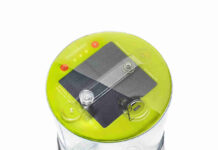
In the BIOCOMET project, researchers from Wageningen UR Food & Biobased Research and Plant Research International, part of Wageningen UR, together with biomethanol producer BioMCN from Delfzijl, are all working on the development of a sustainable production of methanol from CO2.
The researchers simulate the photosynthesis process in plant cells by manufacturing biomethanol on a large-scale, using solar cells for the purpose. (Bio)methanol is used as a raw material for making plastics (including bioplastics) and also in fuels (for biodiesel and for the fuel additive MTBE). Using CO2 as a source of carbon helps to reduce the use of fossil oil and the emission of greenhouse gases. This project is part of the BioSolar Cells programme and enables Wageningen UR Food & Biobased Research to contribute to the Biobased Economy.
Plants photosynthesise, using sunlight to convert CO2 to biomass. In this project, researchers simulate this photosynthesis process; for their source of carbon they use left-over CO2 which emitted by factories when fuels are manufactured. The researchers couple a solar cell (the energy generator in the process) to enzymes (that resemble plant enzymes) in order to convert CO2 to biomethanol.
This sustainable and mild process takes place at normal pressure and room temperature and uses light as a source of energy. Thus little energy is consumed and almost no waste is produced; quite the opposite to the processes and technologies used in conventional industry and based on petroleum. So, in an environmentally friendly manner, this innovative process produces an important raw material from waste products. Furthermore, greenhouse gas emission is reduced significantly.
The programme BioSolar Cells works with natural systems or systems based on natural processes that utilise photosynthesis to convert sunlight into energy. BioSolar Cells is a joint initiative involving companies and research institutes. The programme is partly financed by the Ministry of Economic Affairs, Agriculture and Innovation and FOM, NWO and ALW.



